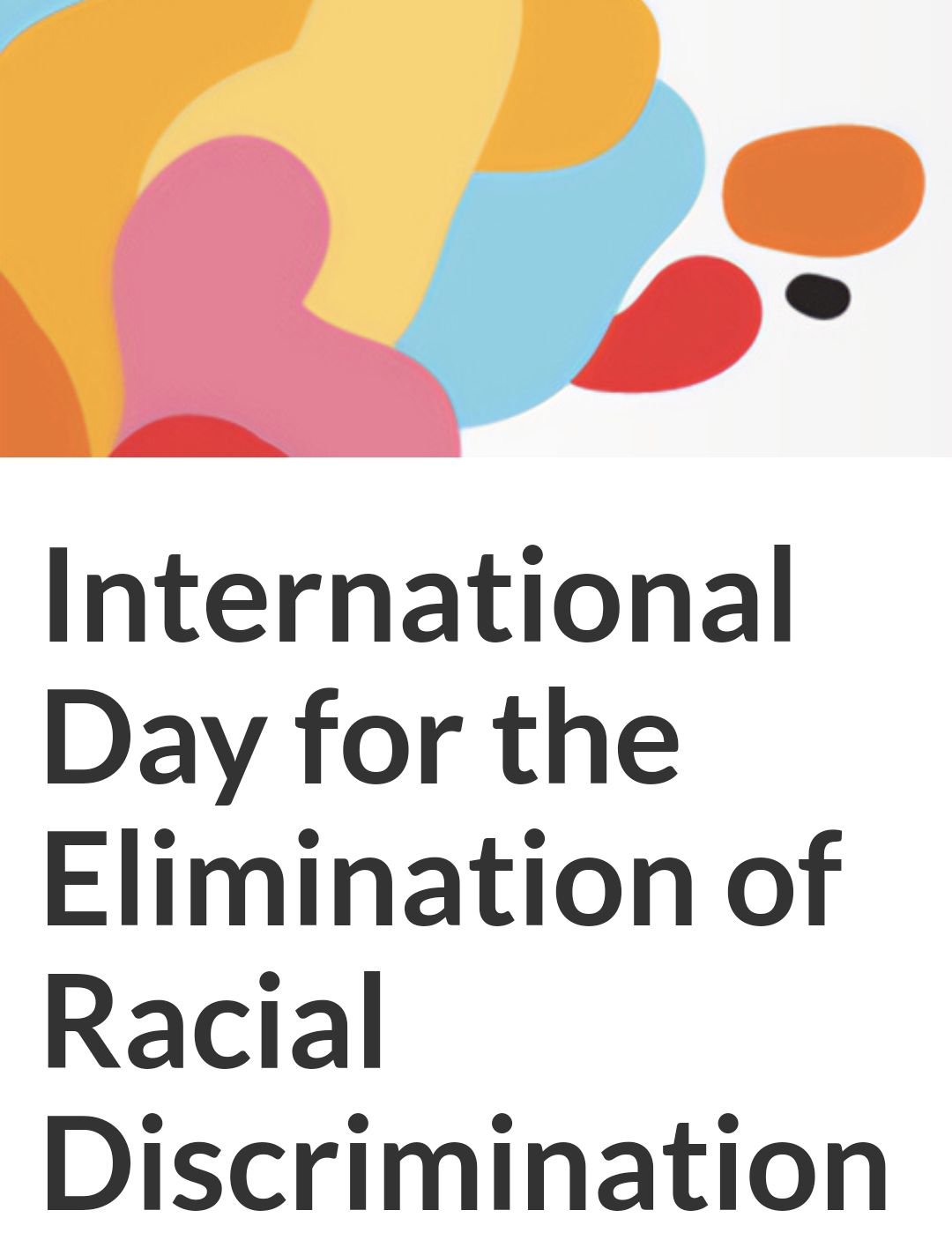**** Via Canad.ca
International Day for the Elimination of Racial Discrimination
Guided by the International Convention on the Elimination of All Forms of Racial Discrimination, the International Day for the Elimination of Racial Discrimination recognizes that the injustices and prejudices fueled by racial discrimination take place every day. Observed annually on March 21, it commemorates the day police in Sharpeville, South Africa, opened fire and killed 69 people at a peaceful demonstration against apartheid “pass laws” in 1960.
While much progress has been made, Indigenous peoples, and racialized and religious minority communities in Canada continue to face racism and discrimination every day. This day serves as a call to action for individuals, organizations, and all levels of government to actively work to eliminate all forms of racial discrimination, injustice, systemic racism and hate. Re-committing efforts, to ensure all people are respected and have equal access and opportunity to be safe and to succeed.
What is racial discrimination
Racial discrimination refers to the practice of treating people differently or unjustly because of their race, ethnic origin, skin colour, language or religion. It can also be systemic, meaning that the discrimination has been built into the structures and institutions of society. This type of discrimination is often more subtle and harder to identify, but it can have significant impacts on the lives of Indigenous peoples and racialized and religious minority communities.
Racial discrimination can take place anywhere in your daily life, including in the workplace, housing, education, and healthcare, and extends to racial profiling by law enforcement and even hate crimes.
How you can fight racism, discrimination, and xenophobia in Canada
- Educate yourself and others about the history and ongoing issues of racism, discrimination, and xenophobia in Canada to increase awareness and understanding of these issues. Check out this podcast to learn how cognitive biases can perpetuate systemic racism: Eh Sayers Season 2, Episode 1 – Created Equal.
- Speak out against racism, discrimination, and xenophobia when you encounter it. This can be done by calling out racist or discriminatory behavior and language, and by standing in solidarity with those who are being targeted.
- Support Indigenous peoples and racialized and religious minority communities by listening to and amplifying their voices, and by supporting organizations and initiatives that work towards racial equality.
- Encourage anti-racism and racial equality, in all areas of life, including in the workplace, schools, and communities, and promote policies and initiatives that support these values.
History of racial discrimination in Canada
The history of racial discrimination in Canada is long and complex and has been shaped by the country’s colonial past. Indigenous peoples in Canada have faced discrimination and marginalization since the arrival of Europeans, including forced removal from their lands, forced attendance at residential schools, and the ongoing denial of their rights and self-determination.
Racialized and religious minority communities, particularly those of African, Asian, Latin American, and Middle Eastern descent, as well as Jews and Muslims, have faced discrimination in many areas of life. Today, Indigenous peoples and racialized and religious minority communities are disproportionately affected by such things as:
- poverty
- inequitable access to quality healthcare
- poor housing
- a lack of access to quality education
- over-representation in the criminal justice system
Hate crimes and acts of racism remain a serious problem in Canada, with an increase in hate crimes reported in recent years. We are taking steps to address ongoing issues of racism and discrimination through policies, initiatives, and education.




